The true nature of life remains a mystery to this day. Experiments in quantum physics, like the double-slit experiment, reveal that particles behave differently under observation, almost as if matter ceases to exist when no one is looking.
This intriguing phenomenon is reminiscent of how a computer loads only parts of a map at a time to conserve memory and processing power.
Today, we’ll set aside the science and dive into the philosophical questions raised by this idea.
Some facts that are suggesting we are

- The double-slit experiment suggests that matter may not exist when unobserved, potentially to conserve memory.
- Quantum entanglement, in which information can theoretically travel faster than the speed of light, might be akin to a line of code governed by an opposite rule.
- Space serves as a challenging end of the map backdrop to navigate, much like in The Truman Show.
- The notion that we appear to be alone in the vastness of the universe and the absence of any nearby habitable planets within our view
- The tendency of most people to adopt a form of zebra camouflage
- The persistence of certain archetypes that remain relevant to this day
- Computing power could be exponentially better with quantum computing and graphics indistinguishable from our world
- The Planck length acts as a fundamental limit of measurement due to the properties of light in a theoretically analog world
- Aesthetically pleasing proportions such as the golden ratio can be measured
- The Mandela Effect as a potential update to the database of our shared reality
- The collective unconscious serves as a foundational memory, providing each individual with a mental map of the world to navigate and succeed
If life is a simulation, is it fair to draw comparisons to video games?

I believe that games like GTA or other open-world simulations of life offer the most compelling parallels to this theory.
GTA is essentially a condensed version of real life, which is typically slower-paced and less eventful. It’s a game where you can do virtually anything with minimal effort and no real consequences.
As Elon Musk suggests, if life is indeed a simulation—which he argues is more probable than us existing in a base reality—then the real world must be incredibly dull by comparison.
How would you know if you are an NPC?
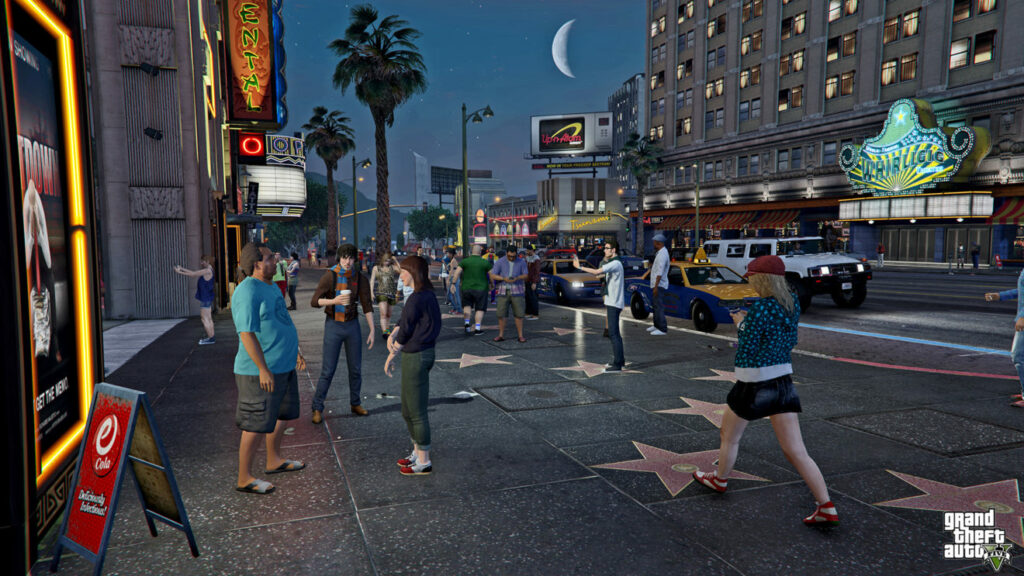
An NPC, or Non-Playable Character, is typically controlled by either scripted actions or artificial intelligence.
However, advanced NPCs might be capable of independent thought, allowing them to create their own paths of action. In this case, how would you determine who around you might be an NPC—even yourself?
You likely wouldn’t be able to tell. The very fact that you can think and perceive a sense of free will could be influenced by the determinism of your code and characteristics.
Also because a human stands out from the crowd doesn’t mean that he isn’t scripted or another form of AI, just like you meet out of the ordinary NPC in games.
In our world, children are born with an inherent personality that develops as they interact with their environment as well.
A key sign that someone might fit the “basic NPC” label is their tendency to adopt popular beliefs without questioning widely accepted ideas or to follow group preferences and tastes simply to blend in. This approach seems like an efficient way to conserve mental energy or processing power.
What would be the goal of the simulation if they were designed like games?
If a simulation, like a game, were designed to entertain us, it would likely center around five primary objectives.
The primary purpose of a game is to provide entertainment, and interestingly, in our world, those who entertain us—whether they are singers, movie stars, or YouTubers—tend to receive substantial financial rewards. This trend suggests that entertainment holds significant value in our lives perhaps the highest value.
1. Have an adventure and meet our destiny (complete the solo campaign)

The selling point of regular games are the adventure mode which is often played solo or sometimes with several other players.
These adventures tend to follow a scripted or written narrative that the player must adhere to, encountering obstacles and solving problems in order to improve their skills and meet various characters along the journey.
Today, when games feature an adventure mode, it’s often designed to reflect our desire for personal growth and self-fulfillment in real life. This need would certainly have to exist in the base reality version as well.
Games frequently present exaggerated or fantastical scenarios, such as a world overrun by zombies or a medieval setting, that appeal to our imaginations and desires for adventure. These settings allow players to escape reality and immerse themselves in experiences that are far removed from everyday life.
Interestingly, certain games provide hints for the path to take, such as pressing a button to reveal the direction to follow or the clue to observe. This concept could parallel our sense of purpose and appreciation in life. Perhaps we instinctively know where to go by following what resonates with us on a deeper level.
Embarking on adventures in life can certainly add excitement and variety, breaking the monotony of daily routines. Engaging with fascinating individuals and exploring unique locations in various contexts enriches our experiences and makes life more captivating.
2. Play with other people (multiplayer mode with real players)
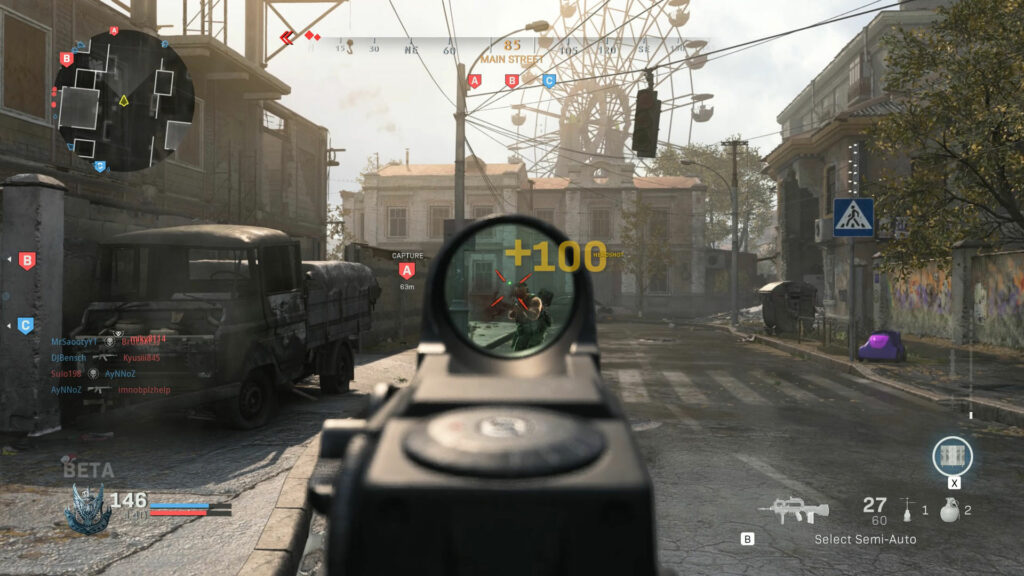
Another significant feature of modern games is the multiplayer mode, which serves as a platform for either competitive or cooperative social interactions among players.
While it’s true that this may not be the primary purpose of most games, it remains a crucial element. Some games are entirely focused on multiplayer experiences, while others incorporate NPCs into their multiplayer frameworks. You can for example, play inside the world of GTA with other real players.
This could be similar to participating in sports in our reality or even engaging in multiplayer games in modern times. Which most kids will do on their phones with games like Roblox, Minecraft, Brawl Stars, etc.
Playing alongside others real players in adventure mode would likely be the ultimate experience in many ways.
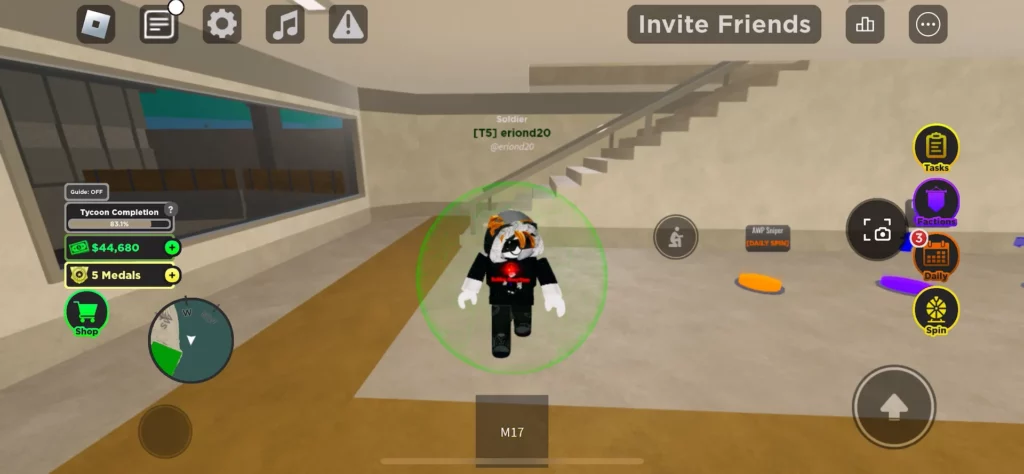
This concept can also be seen in metaverse multiplayer games like Second Life or even in low-resolution versions of Minecraft, Roblox, where players, particularly children, have the opportunity to engage in fictional narratives within expansive virtual worlds.
These platforms provide a space for creativity and exploration, allowing users to interact with others while crafting their own stories and experiences in a shared universe.
3. Achieve some side quests (explore the details of the game)

Games like GTA provide numerous side quests, including optional missions that don’t advance the main narrative.
Some games even feature micro-games within them, allowing for multiple layers of gameplay. While these mini-games are often included as gimmicks, they can still be quite enjoyable, such as playing darts or pool in GTA.
This is similar to taking a vacation to try something fresh and different or exploring a new destination for a brief period.
Exploring a new city by visiting its popular landmarks, sampling local cuisine, and immersing yourself in its culture for a few days is much like a side quest—a temporary, enriching experience that offers a break from the routine. Similarly, taking up a hobby, like learning to play the guitar, without the aim of becoming a professional, also fits the idea of a side quest.
These activities add depth and variety to our lives, offering moments of adventure or personal growth without becoming central to our main “storyline.” They bring enjoyment, provide new skills or memories, and enrich our perspectives without altering the overall path we’re on.
4. To simulate the everyday life (to explore responsibility)
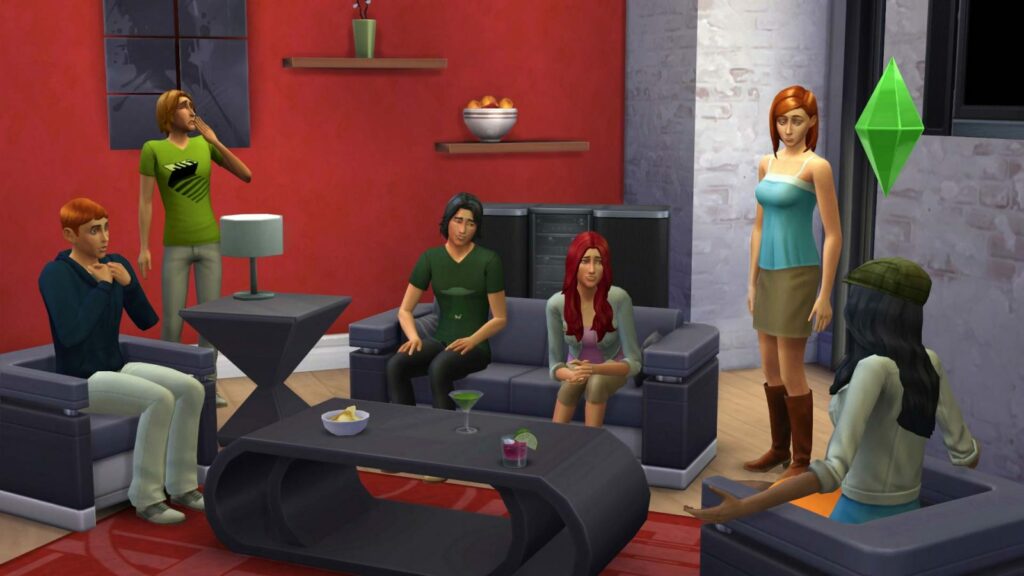
The Sims series is renowned for its unique ability to simulate everyday life, transforming the mundane into an engaging gaming experience.
Players are given the opportunity to create and manage the lives of virtual characters, known as Sims, navigating a range of activities from building homes and forming relationships to pursuing careers and developing skills.
This life simulation game allows players to explore the complexities of human existence, offering them a sandbox environment where they can experiment with different lifestyles, choices, and social dynamics.
The series has gained popularity not only for its entertaining gameplay but also for its ability to reflect and satirize real-life situations, making it a fascinating commentary on contemporary society.
This is also similar to simulation games like those where you pilot an aircraft or manage a theme park, offering an entertaining way to experience handling responsibilities.
In GTA, you can even take on regular jobs, such as being a police officer, or earn money by selling cars or robbing convenience stores.
This could certainly resemble what the majority of the population (98%) experiences as their primary adventure. They engage in the same routine daily, working to earn money for goods and occasionally participating in some form of pre-packaged adventure like going to Disney or visiting a list of monuments in a city.
Interestingly, in real life, only 2% of people engage in what could be considered a true adventure mode, while 98% are stuck in the secondary modes. This is largely due to the constraints of the system, which often compel individuals to abandon their pursuit of genuine adventure.
5. To grow and gain recognition (to endlessly unlock new levels)
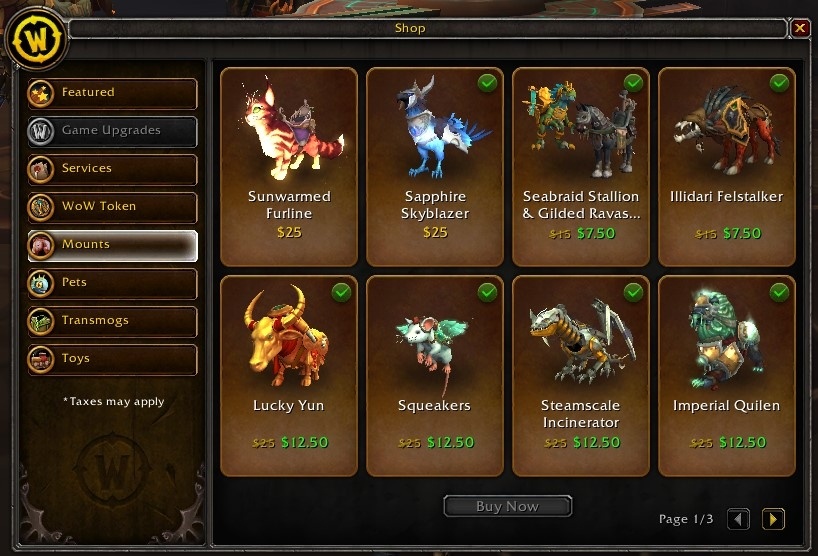
In today’s free-to-play gaming landscape, one of the predominant goals has become leveling up characters and amassing a vast array of items and badges. This collecting behavior mirrors the endless pursuit of self-fulfillment, akin to curating a beautifully designed home filled with unique decor and meaningful artifacts.
Just as individuals derive satisfaction from acquiring stylish pieces for their living space, players experience a similar joy in obtaining virtual items and achievements within a game. The thrill of unlocking new levels or earning rare collectibles fuels a sense of accomplishment, creating a cycle of motivation that encourages continued engagement.
Moreover, the social aspect of gaming amplifies this experience. Many games feature leaderboards, achievements, and social sharing options that allow players to showcase their collections to friends and fellow gamers. This visibility not only enhances the sense of community but also reinforces the feeling of progress and success. Players often share their triumphs, whether it’s completing a challenging quest or obtaining a coveted item, creating a shared narrative that connects them to others.
This social interaction serves as a powerful placebo effect, where players feel a heightened sense of progress and achievement simply by participating in the game. The act of leveling up or collecting badges becomes not just a personal milestone but also a topic of conversation and a source of social validation.
Ultimately, the drive to collect and level up in games reflects a deeper human desire for growth and recognition. It taps into our innate need for achievement and connection, offering players a virtual avenue to fulfill these aspirations while simultaneously providing a sense of belonging within a broader community. This interplay between personal accomplishment and social interaction is what makes the collecting aspect of gaming so compelling and engaging.
In any scenario where pay-to-win mechanics are at play, growth and recognition that stem from financial investment rather than training, effort, competence, or genuine improvement are likely to be superficial. This mirrors the concept of conspicuous consumption in real life, where individuals seek validation through the acquisition of material goods or social likes rather than through meaningful achievements.
Changing game in our world

One of the remarkable aspects of our world is the ability to experience different countries and cultures, much like switching to a different game on our console. Each country offers its own unique set of customs, traditions, and ways of life, akin to the distinct game mechanics and narratives found in various video games.
Just as a player can explore new worlds and storylines by selecting different games, we too can immerse ourselves in diverse cultural experiences by traveling or even relocating. This shift allows us to adopt new perspectives, learn new languages, and engage with different social dynamics. Each cultural setting can feel like a new level, complete with its own challenges and rewards, offering opportunities for personal growth and transformation.
Embracing this adaptability enables us to navigate the complexities of human experience, fostering a sense of curiosity and openness. Whether it’s savoring local cuisine, participating in traditional festivals, or understanding different philosophies, each cultural encounter enriches our understanding of the world and ourselves. In essence, our ability to switch between cultures is not only a way to broaden our horizons but also a journey of self-discovery and exploration.
Switching careers or even taking on a new project can be much like starting a new game. Just as each game presents its own rules, challenges, and rewards, every career path or project has a unique learning curve and set of expectations. Changing careers often requires you to adapt to an entirely different environment, much like adjusting to a new game’s mechanics or storyline. You may need to build fresh skills, navigate unfamiliar challenges, and discover what motivates you in this new “game.”
Similarly, taking on a new project within the same career can feel like tackling a new level in a game—there are new objectives, skills to refine, and achievements to unlock. These transitions offer variety and personal growth, allowing us to explore different parts of ourselves and ultimately gain a broader experience, much like a seasoned gamer exploring new worlds.
Conclusion
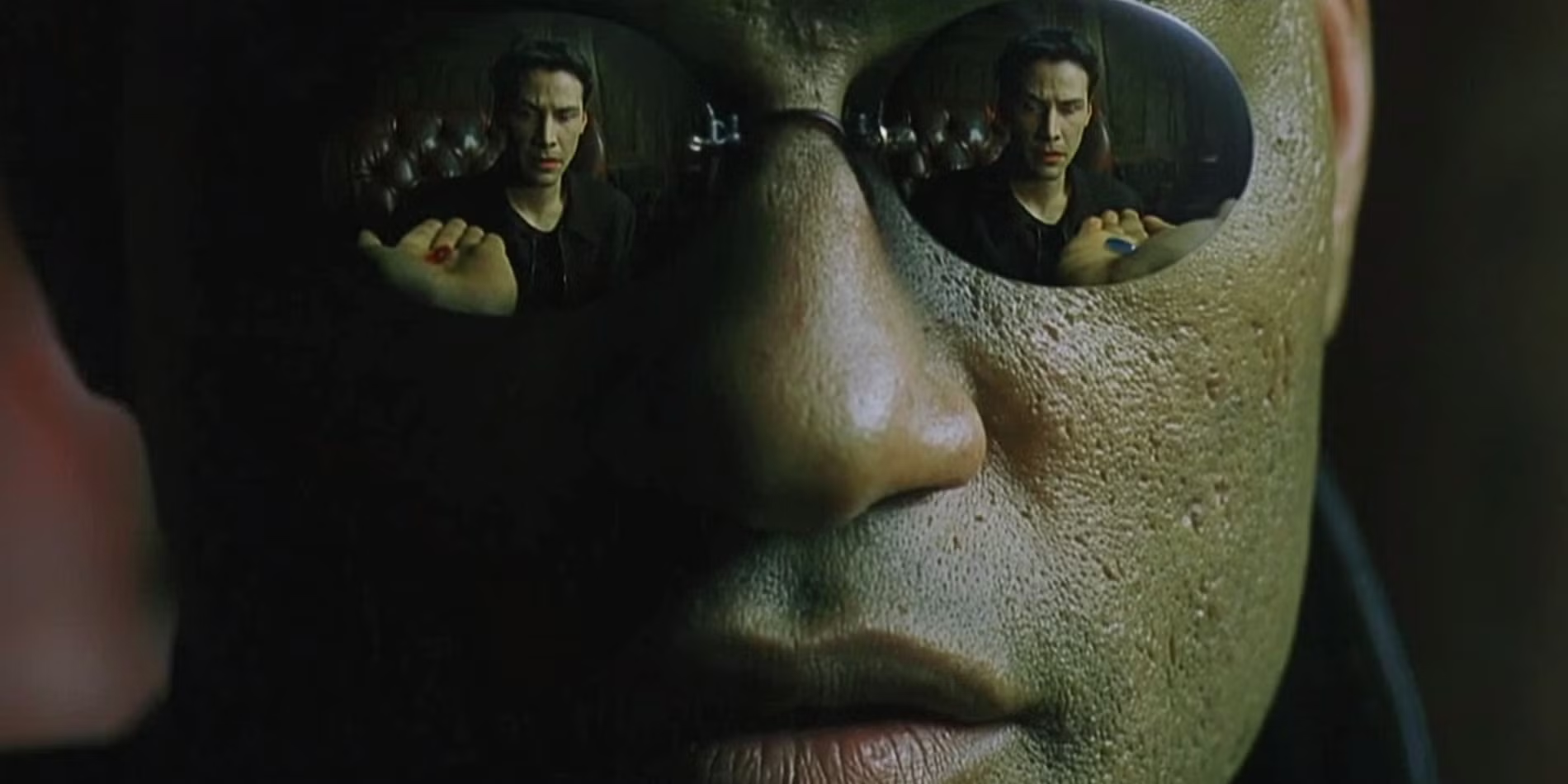
These analyses indicate that, regardless of whether our world is simulated, the fundamental objectives of life would largely remain unchanged.
The primary aim would be to savor the experience, while key purposes would include fulfilling our destiny, embarking on adventures, engaging with others in cooperative or competitive play, exploring the intricate details of the world crafted by its creators, and ultimately balancing these pursuits with the everyday, mundane aspects of life and responsibility while growing.
I believe one of the key differences between games and our reality is the uncertainty surrounding what happens after death. Unlike in games, where we might respawn or be reincarnated, we lack the ability to pause and resume our lives or access any sort of menu although we can travel to other cities or countries.
This uncertainty surrounding life and death may be one of the defining characteristics that contribute to our perception of reality.
It’s likely that the way you approach video games reflects how you conduct yourself in real life. For instance, people who seek validation often play games where they can earn recognition or accolades. Social individuals are more inclined toward multiplayer modes, while those who prefer personal focus might gravitate towards solo adventure games.


GIPHY App Key not set. Please check settings